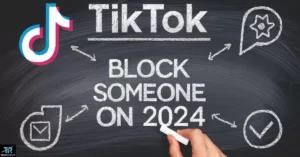In the rapidly evolving landscape of artificial intelligence, one tool that has captured the imaginations of writers worldwide is Novel AI. As AI storytelling assistants continue to gain traction, Novel AI stands out as a pioneering platform designed to aid authors in crafting intricate narratives, developing vibrant characters, and bringing their wildest story ideas to life. But is it truly the best AI story generator in 2024? Let’s delve into the depths of this innovative tool and explore its capabilities.
What is Novel AI and How Does It Work?
At its core, Novel AI is an advanced language model trained on a massive corpus of fiction writings spanning various genres. This cutting-edge AI system leverages its vast knowledge base to generate novel story plots, characters, settings, and dialogue upon receiving prompts from writers.
The process is remarkably user-friendly. Authors simply input a brief description or concept, and Novel AI’s powerful algorithms analyze the prompt, drawing inspiration from its training data to generate coherent and imaginative story elements. These can range from intriguing character bios and immersive world descriptions to captivating plot twists and witty dialogues.
What sets Novel AI apart is its ability to maintain contextual understanding throughout the storytelling process. As the writer iteratively builds upon the AI’s output, Novel AI adapts and ensures that each new story element remains consistent with the established narrative, creating a seamless and cohesive experience.
Key Features That Make Novel AI Stand Out

- Creativity and Coherence: Novel AI’s strength lies in its ability to generate truly novel and imaginative story elements while maintaining logical consistency within the narrative.
- Diverse Genre Support: Whether you’re crafting a gripping mystery, a futuristic sci-fi adventure, or a heartwarming romance, Novel AI’s versatile knowledge base can cater to a wide range of genres.
- Contextual Understanding: As you build upon the AI’s generated content, it continuously adapts and ensures that each new element aligns with the established story, avoiding jarring inconsistencies.
- Flexible Customization: Writers can fine-tune various parameters, such as the desired level of creativity, the writing style, and even specific plot points or character traits, to tailor the output to their preferences.
- Integration with Writing Tools: Novel AI seamlessly integrates with popular writing software like Scrivener and Google Docs, allowing authors to smoothly incorporate the AI’s assistance into their existing creative workflows.
Pros of Using Novel AI as Your AI Storytelling Companion
- Overcome Writer’s Block: With the ability to generate unlimited story ideas on demand, Novel AI can be a powerful ally in combating the dreaded writer’s block, reigniting your creative spark.
- Explore New Creative Avenues: By presenting unexpected narrative directions and character concepts, Novel AI encourages writers to venture beyond their comfort zones and explore uncharted creative territories.
- Accelerate Your Writing Process: By providing a solid foundation for worldbuilding, character development, and plot progression, Novel AI can significantly accelerate your overall writing output and productivity.
- Flesh Out Underdeveloped Concepts: If you have a brilliant story idea but struggle to fully flesh it out, Novel AI can help bridge the gaps, offering fresh perspectives and fleshing out underdeveloped narrative elements.
- Multifaceted Storytelling Aid: Whether you need assistance with plotting, worldbuilding, character development, or even generating dialogue, Novel AI can be a versatile companion throughout the entire creative writing process.
Read More: The Power of AI: A Comprehensive Guide to Making Money in 2024
Potential Drawbacks and Limitations

While Novel AI is undoubtedly a remarkable tool, it’s essential to acknowledge its limitations and potential drawbacks:
- Output Quality Variability: Like any AI system, the quality of Novel AI’s output can vary, and writers may need to extensively edit or refine the generated content to align with their desired standards.
- Complex Narrative Struggles: While Novel AI excels at generating individual story elements, it may struggle with maintaining cohesion and logical flow over longer, more intricate narrative structures.
- Cliché and Trope Pitfalls: As Novel AI’s knowledge base comprises existing fiction, there’s a risk of inadvertently generating clichéd or overused story elements, requiring careful curation from the writer.
- AI Unpredictability: Despite its impressive capabilities, Novel AI’s outputs can sometimes be unpredictable or veer in unexpected directions, which may not align with the writer’s intended vision.
- Ethical Concerns: As AI increasingly encroaches on creative domains, some authors may have philosophical or ethical reservations about the role of AI in the artistic process of storytelling.
How Novel AI Compares to Other Story Generator Tools
here is a comparison of Novel AI with other story generator tools presented in a table format:
| Feature | Novel AI | Other Story Generators |
|---|---|---|
| AI-driven plots | Advanced and adaptive | Basic |
| Character creation | Unique and personalized | Generic |
| Settings and scenes | Rich and detailed | Simplistic |
| User-friendliness | High, easy to navigate | Varies, often less intuitive |
| Adaptability | Adjusts to writing style | Limited |
| Algorithm updates | Regular improvements | Infrequent |
| Creative suggestions | Extensive and varied | Minimal |
| Overall functionality | Comprehensive toolkit | Basic tools |
Novel AI excels with advanced, adaptive AI, rich details, and user-friendly design, making it a superior choice for creative writers compared to other story generator tools.
Best Practices for Getting the Most Out of Novel AI

To truly unleash the full potential of Novel AI and maximize its effectiveness as an AI storytelling aid, it’s crucial to follow some best practices:
- Provide Clear, Detailed Prompts: The quality of Novel AI’s output heavily relies on the specificity and clarity of the prompts you provide. The more detailed and contextual information you can supply, the better the AI can understand and align its generated content with your vision.
- Use AI Output as a Starting Point: While Novel AI’s generated story elements can be impressive, it’s essential to view them as a foundation or a source of inspiration, rather than a final product. Writers should be prepared to extensively edit, refine, and build upon the AI’s output to truly make the story their own.
- Find the Right Balance: Striking the perfect balance between AI assistance and personal writing is key. Overreliance on Novel AI can potentially stifle your creative autonomy, while underutilizing it may negate its benefits. Experiment and find the sweet spot that works best for your creative process.
- Combine with Other Creativity Tools: Novel AI can be a powerful addition to your creative toolkit, but it shouldn’t be the only tool in your arsenal. Consider combining it with other techniques, such as mind-mapping, freewriting, or even old-fashioned brainstorming sessions, to foster a well-rounded and dynamic creative process.
- Embrace Human Editing and Revision: While Novel AI can be a valuable aid, it’s important to remember that human editing, revision, and artistic judgment are still crucial components of the creative writing process. The AI’s output should be viewed as a starting point, not a final product.
Conclusion
In the ever-evolving landscape of AI storytelling tools, Novel AI has undoubtedly established itself as a front runner in 2024. With its advanced language model, diverse genre support, and contextual understanding, it offers writers a comprehensive and versatile companion throughout the creative writing process.
However, it’s essential to recognize that Novel AI, like any AI system, has its limitations and drawbacks. Output quality can vary, and it may struggle with maintaining cohesion in longer, more complex narratives. Additionally, there are valid ethical concerns surrounding the role of AI in creative domains that writers should thoughtfully consider.
Frequently Asked Questions
How does Novel AI work its magic?
With just a few simple prompts, Novel AI generates unique story plots, vibrant characters, and immersive settings tailored to your preferences. It continuously learns from your inputs, adapting to your writing style and evolving with you as your stories unfold.
What makes Novel AI the best in 2024?
Novel AI stands out with its intuitive user interface, unparalleled storytelling capabilities, and a vast knowledge base spanning genres, themes, and writing techniques. Its AI-powered writing assistant provides real-time suggestions, ensuring your stories are polished and compelling.
Can Novel AI help with writer’s block?
Absolutely! Novel AI is a writer’s best friend when inspiration runs dry. With its intelligent story generation and plot twists, it can reignite your creativity, offering fresh perspectives and unique narrative directions to overcome writer’s block.
Is Novel AI compatible with popular writing tools?
Yes! Novel AI seamlessly integrates with industry-leading writing software and apps, allowing you to incorporate its AI-generated content directly into your preferred writing environment, streamlining your workflow.
How does Novel AI protect my intellectual property?
Your stories and ideas are precious, and Novel AI takes intellectual property protection seriously. It employs advanced security measures, including encryption and access controls, ensuring your creative works remain safe and confidential.











